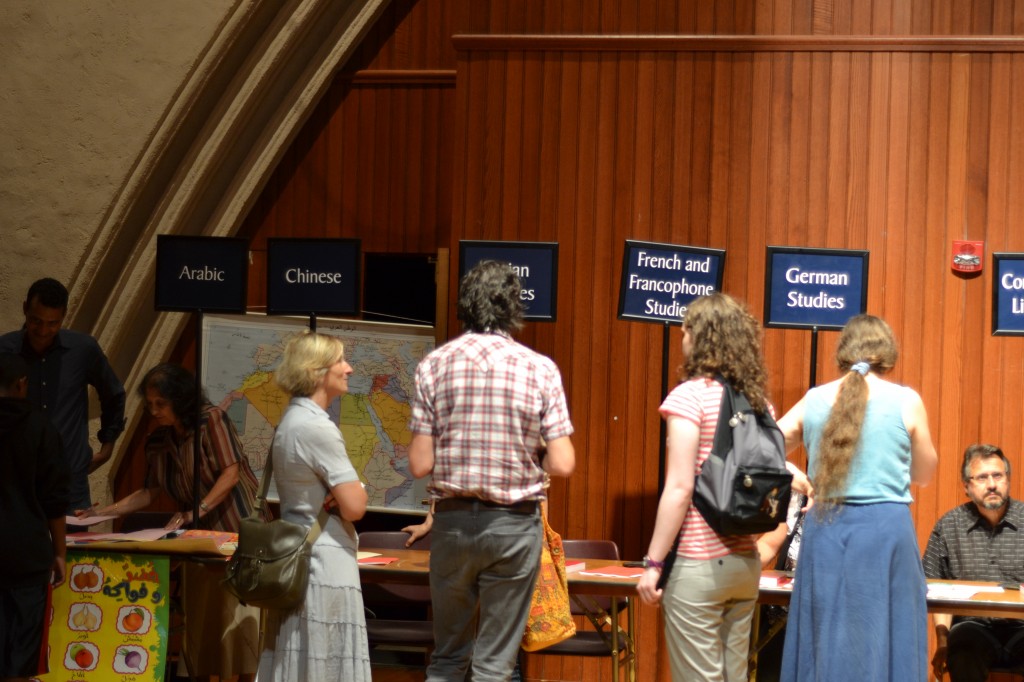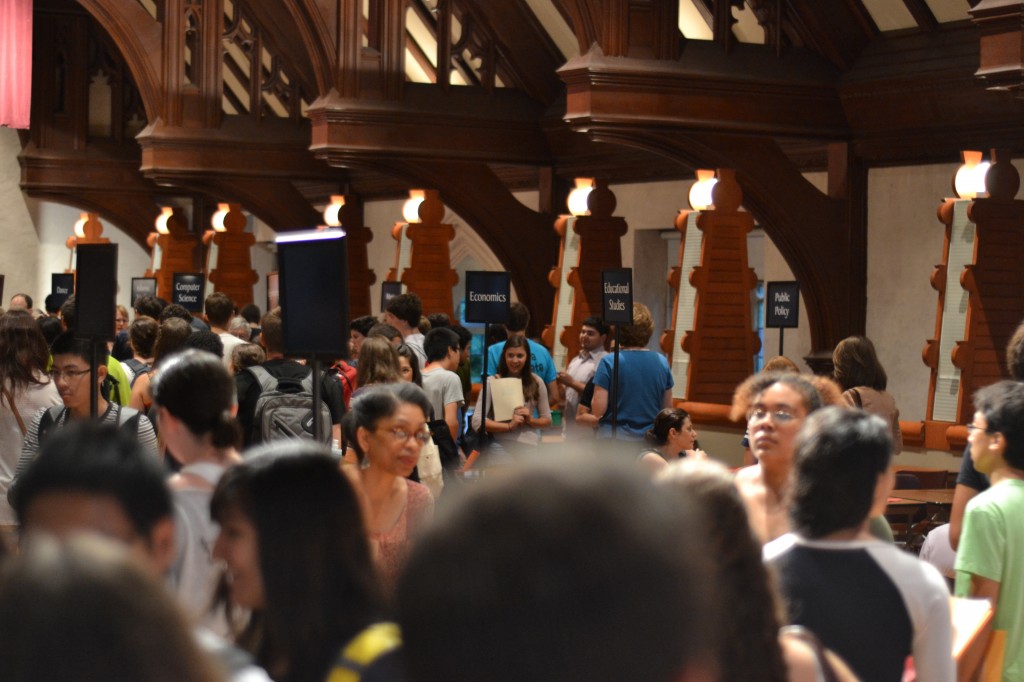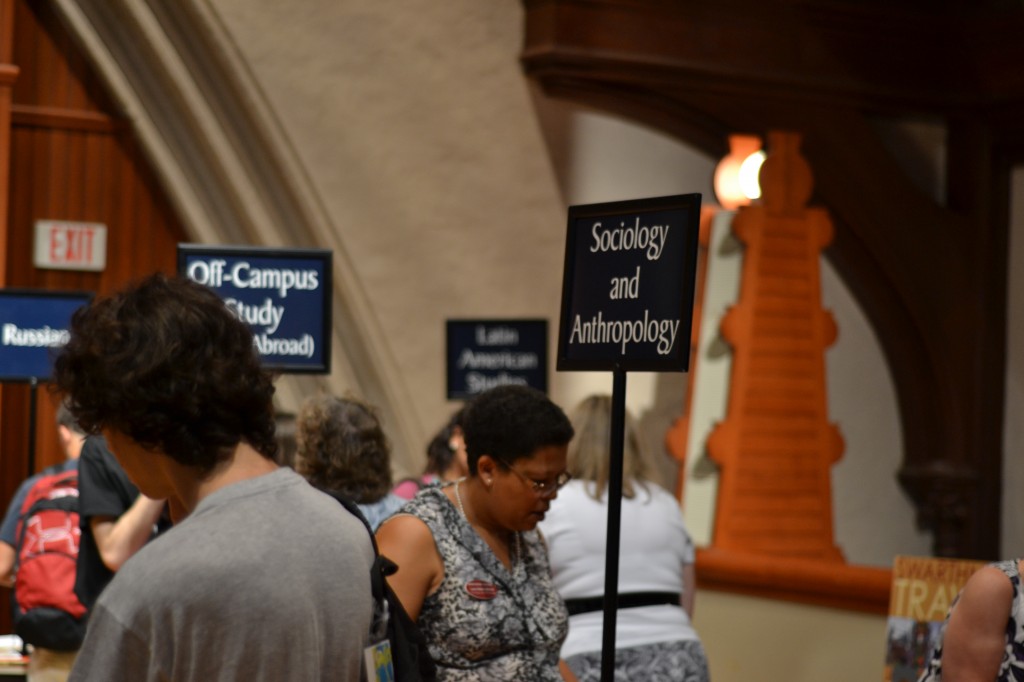I would wager that if you could chart the most restlessly revised institutional systems at small liberal-arts colleges, you would find that advising would be one of the top two or three on that list at most colleges.
Advising is certainly a perennial favorite as a scapegoat for the ills of the curriculum. When students graduate without some of the skills or competencies that faculty expect them to have, we often blame advising. When students avoid some disciplines or cluster in others, many faculty believe that poor advising is the reason, and the same goes for when students perform poorly in a particular course or program of study.
Partly we know that most of us were given little advice on how to advise students about their course of study. Rather like skill at teaching, skill at advising grows organically out of the discretionary practices and insider knowledge of faculty. When I first arrived at Swarthmore 17 years ago and was asked to advise first-year students, most of what I did was make sure that they were taking what they needed to take and that they knew about the resources available to them. (Most of which I had to look up in various booklets and catalogs myself if the question arose.) Sometimes I connected to a student more deeply and was able to be a more subtle guide to their curricular and life choices, but you can’t make that happen by fiat. That’s still the case: no matter how much more I know and understand about academia, I can’t be a mentor to everyone, because not everyone needs a mentor in the first place, and very few of those who do need me in particular.
What I’ve tried more consciously to offer to my assigned advisees over time is a frank explanation of the structure of the curriculum, conceding where appropriate its ungainly or baroque character. At this point, I think I can tell my advisees a lot about what each department studies, why they study and teach it in the way that they do, and what trade-offs are involved in both practical and intellectual terms in taking on a particular course or major. I want my advisees to have some insight into why the hip bone connects to the leg bone, at least insofar as they’re interested in or seeking that kind of perspective. I think that’s what faculty can do as advisors that can’t be done as well by others in the college community. Conversely, we aren’t as good as connecting advisees to support services, or knowing when our advisees need counseling of other kinds. But I think we’ve collectively gotten to the point where we recognize that spending time just doing an audit of a student’s transcript is a waste of a face-to-face meeting.
When we recognize that students aren’t getting all the advice that they might want or need, however, I’m not sure what to do about that institutionally. As I said, you can’t force a mentoring relationship. You also can’t force a student who doesn’t want advice or is afraid of what an advisor might say to actively seek it out. I’m also not sure you can compel faculty and administrators to have a richly contextual understanding of the big picture of a given curriculum or institution.




You sound confident about being able to advise students on what each department studies, why they study it, how they study it, and why they study it the way they do. I agree that this is invaluable information. But I’m much less confident about my ability to deliver it, and I studied at and now teach at an institution much like Swarthmore. In my five years here I’ve been repeatedly dismayed by how little the different departments (and disciplines) know about each other, myself included. In fact, I have spent hours (so far fruitless) mulling over how we could get the faculty to educate each other about our disciplinary and departmental boundaries and priorities. Some people would be really interested, others not at all. But our collective ignorance about the work our colleagues do, the questions they ask, the resources they prize, and so forth undoubtedly weakens our capacity, individually and collectively, to advise our students.
My knowledge of the curriculum is partly because I’m a nosy generalist by inclination, but also it’s a by-product of my committee service over the last decade. The latter at least doesn’t scale up to include most faculty members.
We heard a lot of these very sentiments from colleagues last year during the construction of a strategic plan, that they would like to know more about what other departments do, and more about the individual work and interests of their colleagues. The main reason that most people cited for not knowing more was a lack of time. I think that’s right but I also think there are other barriers. Many academics are accustomed to carrying out their most prized intellectual and scholarly conversations in a “closed shop”. This is one of the things that disciplines do for scholars: they make conversations predictable, they put boundaries on the kind of specialized knowledge one is expected to have as an expert.
The process of academic training also encourages practices of semi-paranoid protection of your own intellectual capital. Sometimes the only way to pursue an innovative research project or distinctive angle on a subject pre-tenure is to develop a protective cover story that shields that work from hostile advisors or senior colleagues. Or in the other direction, from the more cunning type of senior plagiarist or from senior research scientists who aggressively move to take first authorship on everything in sight. A lot of that becomes habit-forming.
I think there are ways to create institutional bridges that get faculty talking to each other more often, and SLACs really need those bridges more than research universities do. I also think one way to address the problem is to make more of the work of the faculty transparent via digital media: online syllabi, open-access publishing, open forms of peer review, podcasts or videos of lectures and so on.
Tim, I believe you when you say, “I can tell my advisees a lot about what each department studies, why they study and teach it in the way that they do, and what trade-offs are involved in both practical and intellectual terms…” But I don’t believe that most other faculty at Swarthmore can come close to making the same claim, or even believe that this is part of their job. –*Is* it part of a faculty advisor’s job to be a generalist in curricular knowledge, beyond what’s in the course catalog?
Treading somewhat cautiously here…yes, I think this is the long-term goal that most advisors should have at a liberal-arts college, which is to know enough about the big picture of what’s taught to be able to help a student build a personally relevant map of the curriculum. I don’t think that’s something you expect at the beginning of a faculty career, but later on, yes, I would hope that you’d see that facility develop. Maybe something like a new curricular navigation tool with robust tagging systems and user-created content could help: somebody should propose something like that. 🙂